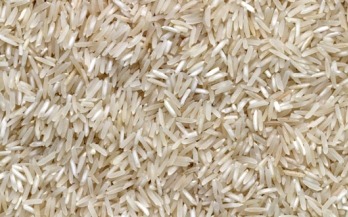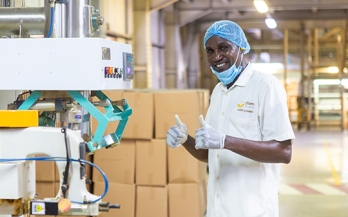Accelerated digitalization is one of the most significant growth engines for developing nations. With technology driving increased sales and profits globally, a digital quality assurance/quality control (QA/QC) system for food fortification in Bangladesh will open THREE paths to greater efficiency and enhanced financial performance for fortified food producers.
Monitoring the quality of fortified foods has traditionally been a manual, time-consuming process, which relies primarily on sporadic testing once products have reached the market. A partnership of international specialists and experts is working with Bangladesh’s food producers to develop a platform of sensors and software, enabling oversight of the production process and product quality.
Nigeria suffers from extreme levels of micronutrient deficiencies affecting the health, death rates, brain and physical development of the majority of Nigerians.To assess this existing evidence, and the remaining data gaps, this State of the Nation review provides a multi-sectoral analysis of all the available data from the last 10 years, from 2012 to 2021.
Too many people across Bangladesh are living with zinc deficiency. One proven and effective way to tackle this is through scaling up production and consumption of rice biofortified with zinc.
With the support of the Bill and Melinda Gates Foundation, GAIN is leading implementation of a pilot programme to develop a digitized system to ensure staple foods are fortified with the right levels of essential vitamins and minerals to support good health and nutrition. The system will also track the fortified foods to ensure they are reaching Nigerian consumers efficiently.
An estimated 2 billion people globally are affected by micronutrient deficiencies, while around one third of the global population is at risk of at least one micronutrient deficiency. Micronutrient deficiencies, also known as hidden hunger, can be linked to significant disease burden and economic loss.
Malnutrition among infants and young children is widespread in Mozambique, with high rates of stunting among children under 5 years of age. Micronutrient-fortified porridge can help increase the nutrient content of diets and thus contribute to the fight against malnutrition.
The UN Food Systems Summit, UN Climate Change Conference (COP26) and Tokyo Nutrition for Growth (N4G) Summit will take place towards the end of 2021. All three events are key milestones on the road to recovery from the devastating impacts of the COVID 19 pandemic on food security and nutrition. The summits are also key moments to mobilize support for and prioritization of staple food fortification as a no-regrets, gamechanging intervention to fight disease and poverty among the world’s most vulnerable communities.
This Guidance Document describes the various elements of quality management (QM) and quality control (QC) required in a laboratory setting. Many qualitative elements are required to analyse the various chemical parameters in food samples, particularly for micronutrient testing and for testing food safety and food quality substances.
At every life stage, micronutrients are crucial to immune system function and resilience to infectious disease. This brief makes the case for large scale staple food fortification as a critically important tool to fight malnutrition in general, and even more so during the global COVID-19 pandemic.










